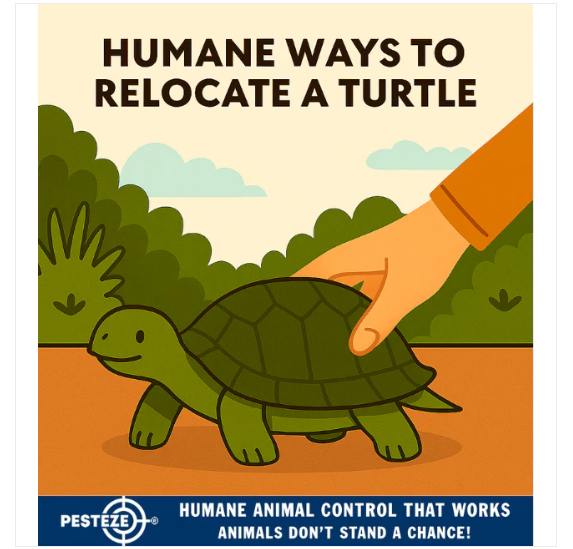HUMANE WAYS TO RELOCATE A TURTLE

HUMANE WAYS TO RELOCATE A TURTLE
SUMMARY
Turtles may wander into yards or roads, but relocating them improperly can harm them. This guide shows how to move turtles safely and ethically without disrupting their habitat.
FEATURES
-
Move in the Same Direction: Always relocate turtles in their travel path.
-
Avoid Long-Distance Moves: Turtles have strong homing instincts.
-
Use Gentle Handling: Support the shell from underneath.
-
Don’t Relocate Aquatic Turtles to Land: Match their habitat needs.
-
Check for Injuries: Contact wildlife rehabbers if the turtle is hurt.
-
Educate Others: Share humane relocation tips with your community.
GUIDE DESCRIPTION
Turtles are slow-moving but determined travelers. If you find one crossing a road or wandering into your yard, your instinct may be to help—but relocation must be done carefully. Turtles have strong homing instincts and often travel to specific breeding or feeding grounds. Moving them too far can disorient them and reduce survival chances.
If you need to relocate a turtle, always move it in the direction it was heading. Never take it to a new area unless it’s in immediate danger and no safe alternatives exist. Use both hands to gently lift the turtle by supporting its shell from underneath. Avoid grabbing it by the tail or limbs.
Aquatic turtles should never be placed in dry areas. Identify the species if possible to ensure you’re matching its habitat. Injured turtles should be taken to licensed wildlife rehabilitators—never kept as pets or treated without proper training.
Educating others about humane turtle relocation helps protect these ancient reptiles and preserves local biodiversity. Simple actions can make a big difference in their survival.
- Amy Chang


Comments 0